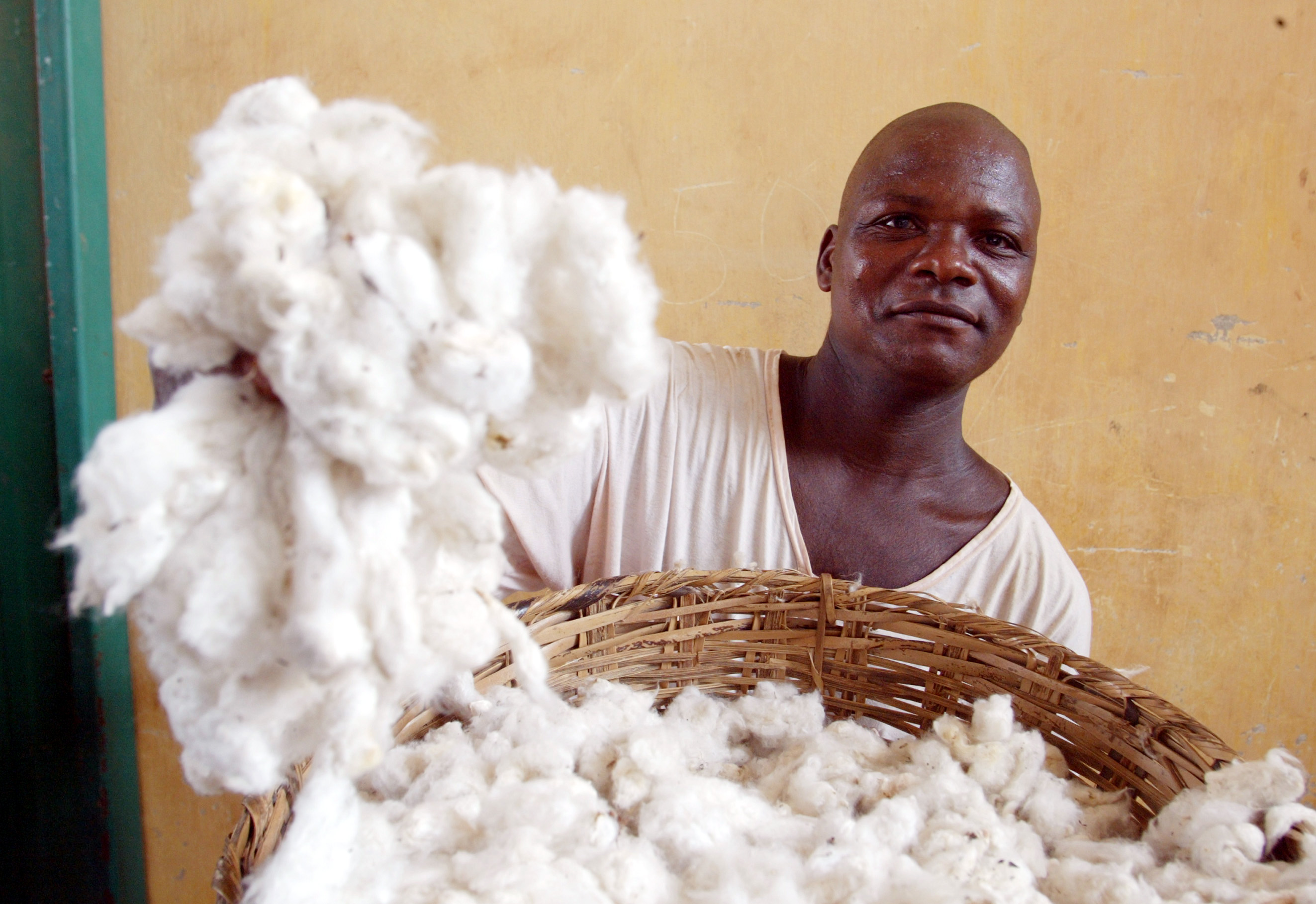Economic situation Government pursuing ambitious reform course
An employee at a cotton ginning factory in Benin
Over the past few years, Benin has become Africa's number one cotton producer. So far, most cotton and other agricultural products are exported unprocessed. The government wants this to change. At the new Glo-Djigbé Industrial Zone (GDIZ), cotton processing started in 2022. There are also plans for domestically processing most of the cashew nut kernels produced in Benin. So far, the processing has been happening in India. Through these changes, the government wants to reduce the economy's high dependence on yield levels and world market prices.
Economically, Benin is highly dependent on neighbouring Nigeria. Most of the goods shipped to the port of Cotonou (such as used cars and rice) go to Nigeria. Benin is also an important transit country for several landlocked countries in its neighbourhood: Niger, Burkina Faso and Mali. However, as a result of the ECOWAS sanctions following the coup in Niger in mid-2023, the border with Niger has been closed since then. Even if Benin's port is now in principle open again for goods from Niger, revenue continues to be significantly lower than before.
Economic growth in spite of increasing challenges
For a number of years now, the macroeconomic situation in Benin has been relatively stable. However, the economy is facing increasing challenges. The World Bank has now categorised Benin as a middle-income country.
While other countries experienced recession as a result of the COVID-19 pandemic, Benin's economy still grew by as much as 3.8 per cent in 2020. In 2021, gross domestic product rose by 7.2 per cent. In 2022, the growth rate was 6.3 per cent. Growth was slowed, among other things, as a result of the decision to close the border between Benin and Niger, which was taken in response to the coup in Niger in mid-2023. Benin's northern region – which is less strong economically anyway – is particularly dependent on transit trade with Niger. The International Monetary Fund (IMF) expects that growth will be 6.3 per cent in 2024. The increase of petrol prices in neighbouring Nigeria has had a negative impact as well, because significant proportions of Benin's informal sector have so far been based on cheap petrol smuggled from Nigeria.
In view of the high level of population growth, economic growth is not sufficient to bring about effective and lasting poverty reduction throughout the nation. More than 80 per cent of the labour force is working in the informal sector. A very large proportion of the people depend on agriculture for their livelihoods. Agriculture accounts for about one fourth of gross domestic product. The overexploitation of resources and the impact of climate change are presenting great challenges for the agricultural sector. For instance, the latest cotton harvest was impacted by floods and extreme heat.
The Beninese government is undertaking major efforts to improve the environment for private sector activity and attract more private investment. Among other things, it is investing in public infrastructure and providing an online portal to make it easier to start enterprises. The government is also working to eliminate existing investment barriers such as inefficiency in public administration, inadequate access to credit, and corruption, which is still presenting problems, even if some improvements have been made.
As at: 08/02/2024
